Home> Company News> Want To Be More Productive? Use A Pump Compensator
- AddressTianqiao, Beiyuan District, Jinan,Shandong
- Worktime9:00-18:00(Beijing time)
- Phone(Working Time)0531-8299 9953
Hydraulic systems are a crucial part of many industries, from manufacturing to construction, and their proper functioning is essential to ensure high levels of productivity. One way to improve hydraulic system efficiency and productivity is by using a pump compensator. A pump compensator is a device that regulates pump flow rate by sensing changes in pressure within the system and adjusting the pump output to match the desired flow rate. In this outline, we will explore the benefits of using a pump compensator in hydraulic systems and how it can help reduce energy loss, improve system efficiency, and extend the life of hydraulic components.
What is a Pump Compensator?
A pump compensator is a device used in hydraulic systems to regulate pump flow rate. In simple terms, it adjusts the pump output to match the desired flow rate by sensing changes in the pressure within the system. This means that if the system pressure changes, the pump compensator will adjust the pump output to match the desired flow rate, helping maintain system pressure and reduce energy losses.

The pump compensator is an essential component in hydraulic systems where high productivity is a requirement. It helps to improve system efficiency by reducing energy losses that may result from flow rate fluctuations. By regulating the flow rate, it can help prevent premature wear and tear on hydraulic components, leading to longer component life. Additionally, it can help reduce maintenance costs and increase uptime and productivity by preventing component failures. Finally, it can help maintain system pressure and prevent pressure spikes that could cause equipment damage or injury to workers.
Benefits of Using a Pump Compensator
Using a pump compensator in a hydraulic system can provide several benefits, including improved system efficiency, longer component life, reduced maintenance costs, and increased safety.
Improved system efficiency: By regulating flow rate and maintaining a constant pressure, a pump compensator can help reduce energy losses due to flow rate fluctuations. This can result in improved system efficiency, reduced energy consumption, and lower operating costs.
Longer component life: Flow rate fluctuations can cause premature wear and tear on hydraulic components, leading to increased maintenance costs and downtime. By regulating flow rate and pressure, a pump compensator can help prevent these fluctuations and extend the life of hydraulic components, resulting in lower maintenance costs and increased uptime.
Reduced maintenance costs: With fewer component failures, maintenance costs can be reduced, leading to increased productivity and lower operating costs. By regulating flow rate and pressure, a pump compensator can help prevent system failures and reduce the need for repairs and replacements.
Increased safety: Maintaining system pressure is crucial for ensuring safe operation of hydraulic systems. Without a pump compensator, pressure spikes can occur, leading to equipment damage or injury to workers. By regulating flow rate and pressure, a pump compensator can help maintain system pressure within safe operating limits, reducing the risk of accidents and injuries.
Overall, using a pump compensator in hydraulic systems can provide significant benefits, including improved system efficiency, longer component life, reduced maintenance costs, and increased safety. These benefits can help businesses improve productivity, reduce operating costs, and ensure safe and reliable operation of their hydraulic systems.
Types of Pump Compensators
There are several types of pump compensators available in the market, each designed to suit specific system requirements. Choosing the right pump compensator for a hydraulic system is crucial to ensure optimal performance and efficiency. Here are the three main types of pump compensators:
-
Pressure Compensators: These pump compensators maintain a constant pressure within the hydraulic system by adjusting the pump output to match the desired flow rate. Pressure compensators work by sensing the pressure within the system and adjusting the pump output accordingly.
-
Flow Compensators: These pump compensators maintain a constant flow rate within the hydraulic system by adjusting the pump output to match the desired pressure. Flow compensators work by sensing the flow rate within the system and adjusting the pump output accordingly.
-
Load-sensing Compensators: These pump compensators adjust the pump output based on the load on the hydraulic system to maintain a constant pressure and flow rate. Load-sensing compensators work by sensing the pressure and flow rate within the system and adjusting the pump output accordingly.
Each type of pump compensator has its advantages and disadvantages. For example, pressure compensators are ideal for applications where constant pressure is critical, while flow compensators are best suited for applications that require constant flow rates. Load-sensing compensators are ideal for applications where the load on the hydraulic system varies. Ultimately, the choice of pump compensator will depend on the specific requirements of the hydraulic system.

Factors to Consider When Choosing a Pump Compensator
When choosing a pump compensator, several factors need to be considered to ensure the device's proper function and maximum efficiency.
-
System Pressure and Flow Rate: The pump compensator must be matched with the hydraulic system's pressure and flow rate requirements. Different types of compensators are designed to accommodate different pressure and flow rate ranges.
-
Load Requirements: The compensator's capacity must be large enough to handle the maximum expected load on the hydraulic system. Load-sensing compensators adjust the pump output based on the load on the system to maintain a constant pressure and flow rate, making them an ideal choice for applications where loads can vary.
-
Pump Type: The type of pump used in the system must be compatible with the pump compensator. Some compensators work best with certain pump types, such as vane or piston pumps.
-
Fluid Type: The type of fluid used in the hydraulic system can affect the compensator's performance. Some compensators may require specific types of fluids or may not be compatible with certain types of fluids.
-
Environmental Factors: Environmental factors such as temperature, humidity, and exposure to contaminants can affect the performance of the pump compensator. It is essential to choose a compensator that is designed to withstand the environmental conditions of the application.
-
Budget and Maintenance: The cost of the pump compensator and ongoing maintenance requirements must be considered. Some compensators require more maintenance than others, and their cost can vary accordingly.
By considering these factors, it is possible to select the right pump compensator for the hydraulic system's requirements, ensuring optimal performance and efficiency. It is always recommended to consult with a hydraulic system expert to help in choosing the right pump compensator for a specific application.
Installation and Maintenance of Pump Compensators
Proper installation and maintenance of pump compensators are essential for their effective operation.
Installation procedures for pump compensators will vary depending on the type of compensator being used. It is important to refer to the manufacturer's instructions and specifications when installing a pump compensator to ensure that it is installed correctly and in compliance with industry standards.
In general, the installation process will involve selecting the appropriate location for the compensator, mounting the compensator onto the hydraulic system, and connecting the compensator to the pump and other system components.
Before installing the pump compensator, it is important to ensure that the hydraulic system is clean and free of debris, as contaminants can interfere with the compensator's operation. It may also be necessary to flush the system to remove any residual debris or contaminants.
Proper calibration of the pump compensator is also essential for its effective operation. Calibration procedures will vary depending on the type of compensator being used and may involve adjusting pressure settings, flow rates, or load sensing settings.
Regular maintenance is also essential for the effective operation of pump compensators. This includes routine inspections to check for leaks or damage, replacement of worn or damaged components, and testing of the system to ensure that it is operating within its specified parameters.
It is important to follow the manufacturer's recommended maintenance schedule and procedures to ensure that the pump compensator continues to operate effectively and efficiently. This can help prevent premature wear and tear on system components and reduce maintenance costs over time.
In addition, it is important to monitor the hydraulic system regularly for any changes in pressure or flow rate, as this can indicate a problem with the pump compensator or other system components. Prompt attention to any issues can help prevent more serious problems from developing and ensure that the hydraulic system operates reliably and efficiently.
Overall, proper installation and maintenance of pump compensators are essential for their effective operation and can help improve the efficiency and productivity of hydraulic systems. By following the recommended procedures and best practices, you can ensure that your pump compensator operates effectively and reliably for years to come.
In conclusion, pump compensators are an essential component of hydraulic systems that can improve system efficiency, reduce energy losses, and extend the life of hydraulic components. When selecting a pump compensator, it is important to consider factors such as system pressure, flow rate, load requirements, and environmental factors. Proper installation and maintenance of pump compensators are also critical to their effective operation. By ensuring the pump compensator is installed correctly and well-maintained, users can maximize the benefits of this tool and improve the efficiency and productivity of their hydraulic systems.


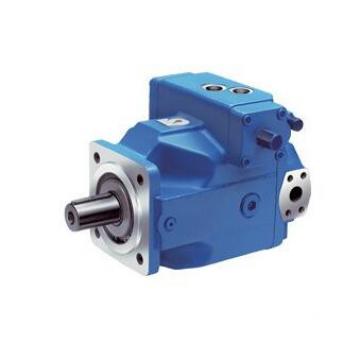 USA VICKERS Pump PVH131R13AF30B252000002001AB010A
USA VICKERS Pump PVH131R13AF30B252000002001AB010A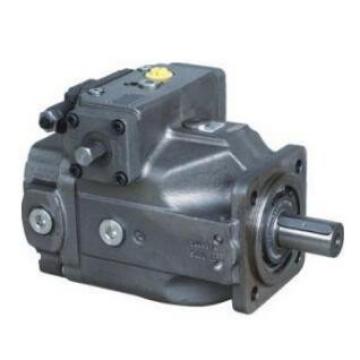 Parker Piston Pump 400481002108 PV140R1K1B4NWLZ+PGP517A0
Parker Piston Pump 400481002108 PV140R1K1B4NWLZ+PGP517A0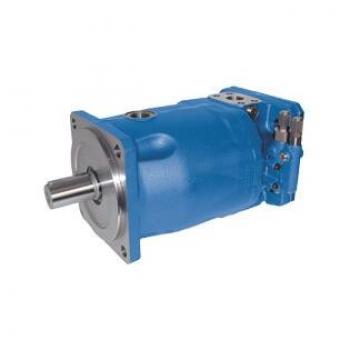 Parker Piston Pump 400481003286 PV180R1K1A4NYCD+PGP511A0
Parker Piston Pump 400481003286 PV180R1K1A4NYCD+PGP511A0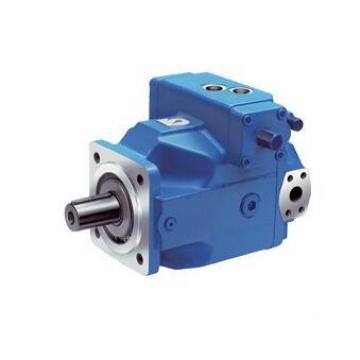 USA VICKERS Pump PVH057R02AA10B25200000100100010A
USA VICKERS Pump PVH057R02AA10B25200000100100010A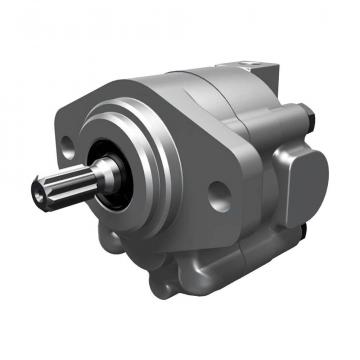 Parker Piston Pump 400481004166 PV270R9K1B4NYLZK0033+PVA
Parker Piston Pump 400481004166 PV270R9K1B4NYLZK0033+PVA